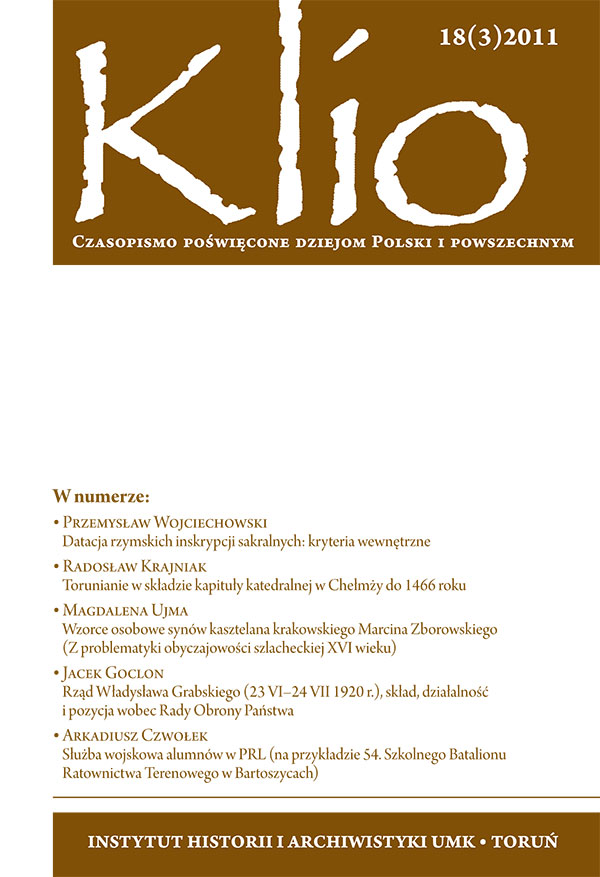Wzorce osobowe synów kasztelana krakowskiego Marcina Zborowskiego (Z problematyki obyczajowości szlacheckiej XVI wieku)
Marcin Zborowski’s, castellan of Cracow, sons’ personality patterns (from research on nobility habits)
Author(s): Magdalena UjmaSubject(s): Cultural history, Cultural Anthropology / Ethnology, 16th Century
Published by: Wydawnictwo Naukowe Uniwersytetu Mikołaja Kopernika
Keywords: Marcin Zborowski; castellan of Cracow; Malopolska; 16th century;
Summary/Abstract: The problem of origins of early modern personality patterns has been a research field for historians, historians of Polish literature and pedagogy for long time already. A history of a raise and a fall of social, economic and political career of the Zborowski’s family from Malopolska still provides some controversies, what is the reason of not getting into consideration the context of their public activity: political situation in Commonwealth of Poland. Despite the huge amount of written sources, characteristics of Marcin Zborowski, castellan of Krakow, and his five sons: Piotr, Jan, Andrzej, Krzysztof and Samuel, are still biased with stereotypes of “an admiration of a looser” or “a negation of a career”. In case of Zborowskis as “great victors”, and afterwards – “great losers”, there can be found visible traces to common education and nobles’ way of thinking in 16th century, results of defeating reformation, as well as long term being in a political opposition to the throne. An everyday life shown quite often a divergence between an ideology and a reality, although many people in 16th century tried to remember about the commonly esteemed patterns of behavior. Those were situated in the tradition of the family, but the most basic source of a knowledge about them were: religion, education, and good breeding. Zborowskis’ activity, although controversial in many points, was quite typical for nobility. Different noble families tried to maximise their advantages that might result from the end of Jagiellonian House and a change on the throne, what very often determined a collision of law and morality, and wide use of a demagogy and a propaganda.
Journal: Klio. Czasopismo poświęcone dziejom Polski i powszechnym
- Issue Year: 18/2011
- Issue No: 3
- Page Range: 43-74
- Page Count: 32
- Language: Polish

